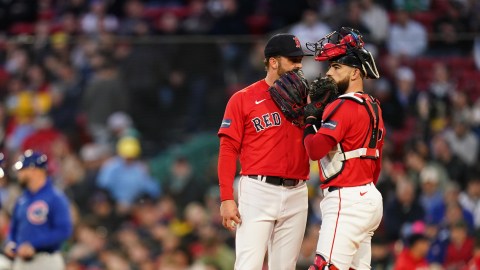Nobody in their right mind would suggest that the New York Yankees’ signing of Rafael Soriano is more important than their re-signing of Mariano Rivera.
Rivera is arguably the greatest closer of all time, a cornerstone of the franchise and has belied his age to post some of his best results in recent years. Soriano is a talented reliever who transformed the Tampa Bay Rays’ bullpen last year, but Mariano Rivera he is not.
However, the signing may illustrate the increased need for a shutdown arm in that spot before Rivera, or any other closer for that matter. As ratings systems such as Wins Above Replacement (WAR), Runs Above Replacement (RAR) and leverage indexes illustrate just how important those seventh- and eighth-inning outs are, teams are ensuring that they have that bridge in place, even if it means lengthy and expensive contracts for guys that used to never get them.
Soriano’s former running mate, Joaquin Benoit, became one of the catalysts in this trend by signing a big deal with Detroit. According to at least one metric (RAR), Benoit was of more value to the Rays than was Soriano last season. The Tigers, meanwhile, went 16-26 in one-run games and had a relatively unproven guy like Ryan Perry pitching in situations just as tense and important as closer Jose Valverde, at least according to their average Leverage Index (aLI). Valverde, who notched 26 saves while making nearly $7 million, pitched in situations which averaged 1.5 in that category (anything above 1.0 is considered high pressure). Perry, a 23-year-old making $408,500, saw action in an identical number of games (60) and had the same aLI as Valverde.
Perry did his job rather well, but with the chance to import a shutdown eighth-inning guy like Soriano, whose WAR was nearly three times that of Perry, the Tigers jumped. Benoit set an incredibly lucrative market for relievers with a three-year, $16.5 million deal.
The Yankees, by giving Soriano what used to be considered closer’s money (three years, $35 million), showed their desire to have stability in a spot in which Joba Chamberlain and Dave Robertson were rather average last season, even if there appears to be some disagreement over the deal in the first place. Because it was so stacked elsewhere and because Rivera is that good, New York had the ability to overcome that issue and make the playoffs in 2010. But, several other contenders were in the mix because they had their Soriano.
Cincinnati saw Arthur Rhodes quadruple the WAR of 40-save man Francisco Cordero. Nick Masset, together with Rhodes a dynamic setup tandem for the NL Central winners, doubled Cordero’s 0.4 mark in that category.
Texas had closer Neftali Feliz pick up the Rookie of the Year Award after saving 40 games. Darren O’Day received little acclaim despite being on par with Feliz in ratings systems. The same could be said for San Diego’s tandem of closer Heath Bell and setup man Mike Adams — Bell had a 47-0 lead in saves, but barely outpaced Adams in WAR, 2.5-2.3.
Then there were the Red Sox, who helped to illustrate the sheer significance of a solid setup situation. Had it not been for Daniel Bard, their bullpen would’ve been downright atrocious, instead of merely substandard.
When pressed on the off-and-on struggles of his closer, Jonathan Papelbon, Red Sox manager Terry Francona would often retort that if he made the swap with Bard, and Papelbon struggled in the eighth inning, what would that accomplish? Bard wouldn’t even have his opportunities to save games, and so often Francona went with his young right-hander to put out a bigger fire than any one Papelbon would face on a given day. As it was, the two pitched in virtually identical situations pressure-wise, and Bard’s 3.3 WAR dwarfed Papelbon’s 0.4.
So, when Boston general manager Theo Epstein set out to restructure his bullpen, the biggest splash came in the form of another setup man (at least for this year) in Bobby Jenks. Not that Bard needed to be replaced or supported, but having multiple options when you need to stifle a rally in the seventh or eighth inning can be invaluable. The numbers, the new ones, are proving that to be the case.
While the Yankees may not have been on the same page in terms of Soriano and ownership reportedly overruling general manager Brian Cashman, there is precedent for the increased need for shutdown setup relievers. By that logic, and by any cost, the signing may turn out to be a great move.



